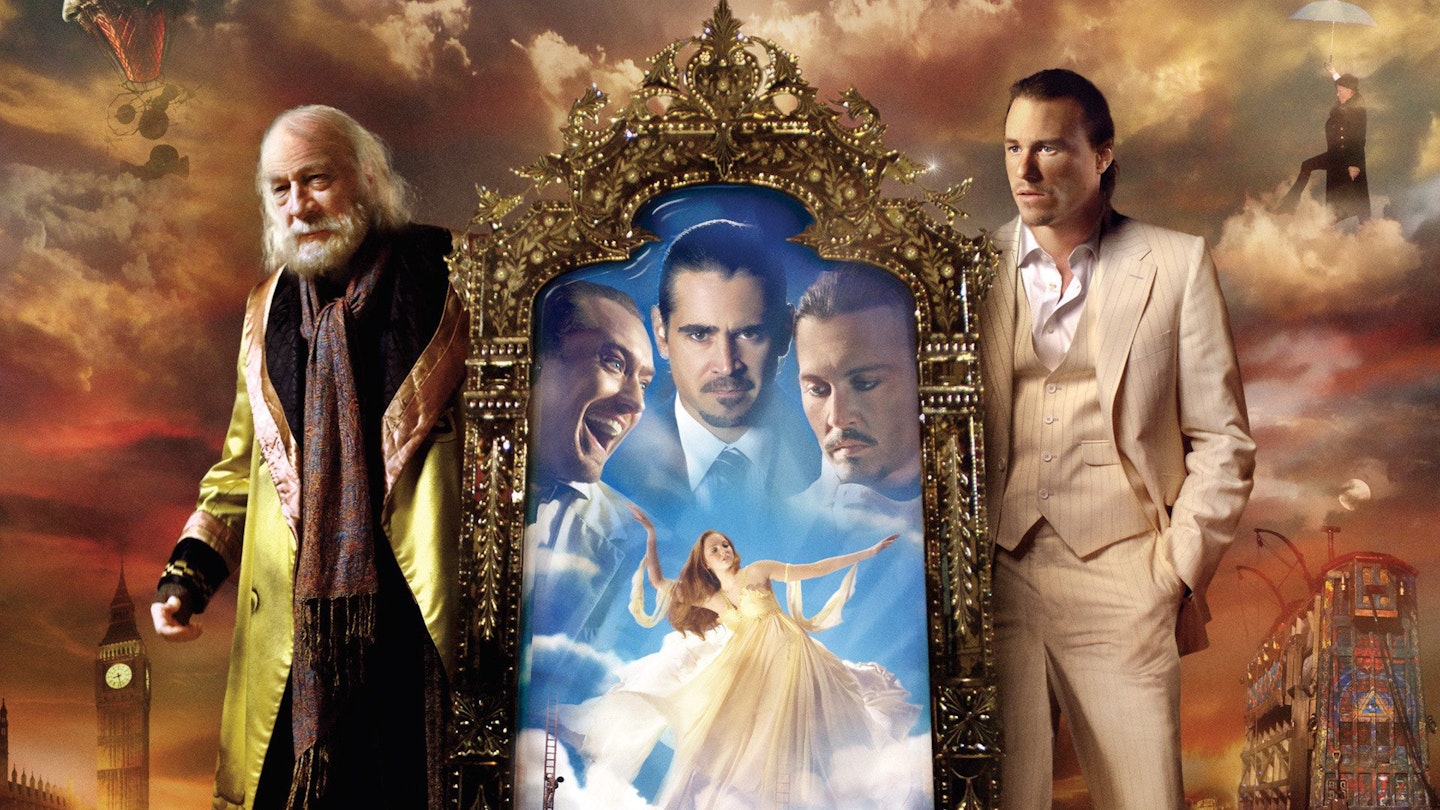Terry Gilliam’s latest carries an unfair burden. Where once it could have been remembered simply for being the director’s most imaginative and engaging film for some time, it has now, given that it features the final performance of Heath Ledger (or at least what was captured of his last performance, before he sadly died midway through production), come to be looked on with more serious eyes. It has been saddled with a pressure to be Something Special.
One feels almost duty-bound to say that Ledger’s performance is extraordinary, a final snatched glimpse of a future great hitting his confident stride, but that would be disingenuous. It’s not a criticism of Ledger to say it’s not extraordinary, because this isn’t an extraordinary role. It’s part of an ensemble, no more or less interesting than any other around it. As Tony, a shady young man who experiences amnesia after being rescued from suicide by Parnassus’ strange but kind players, Ledger is very good — all Jack Sparrow eye-aerobics and Chuck Jones-ish japing. But it would be wrong to compare it to his superlative work in Brokeback Mountain or The Dark Knight. It’s those roles that will serve as his epitaph; this is the full stop. There are, however, two other parts of this troupe worthy of singling out.
Relative newcomers Lily Cole and Andrew Garfield give attention-catching performances as, respectively, the ancient showman’s daughter who is made the prize in a bargain with the devil, and the actor who loves her. We’ve previously seen Garfield shine dramatically in Lions For Lambs and the Red Riding trilogy, but here he shows something new: an ability to be simultaneously bizarre and believable as the herald into Parnassus’ strange world. Anyone looking for Britain’s next best actor should look no further. Cole, equally, defies every rule of the model-turned-actress rulebook by being not just quite-good-considering but a genuinely intriguing new screen presence, turning from sweet to sultry on a sixpence. In a film where sense
is deliberately not at a premium, they give something real and heartfelt to believe in.
However, the real star here is Gilliam. Parnassus isn’t a total success — a storm of imagination turns into a bit of a disappointing drizzle at the end — but it’s a directing achievement to be applauded. To lose one of your leads partway through shooting and then have the creative intelligence to retool the movie in a way that still makes sense — at least within its surreal terms — shows the kind of weirdo tenacity that made Gilliam so interesting before years of bad luck and bad studios seemed to wear him down. It’s to his distinct credit that it’s hard to see how this would have worked differently if Ledger had played the entirety of the role. It’s possible it may even have been a lesser film. Johnny Depp, Jude Law and Colin Farrell each briefly play Tony when he steps inside the ever-changing wonderland of the Imaginarium, enhancing its anything-goes otherworldliness while also suggesting that Tony is a man who is not all he seems. It’s a stylistic trick born out of tragedy, but it’s one of the story’s strongest points.
And if Gilliam’s drive to finish Parnassus was due to a desire to pay tribute to his star, then he has done his friend proud, not by putting the spotlight on Ledger, but by caring so much about the story as a whole that he’s awoken something within himself and produced his most interesting work in over a decade.








